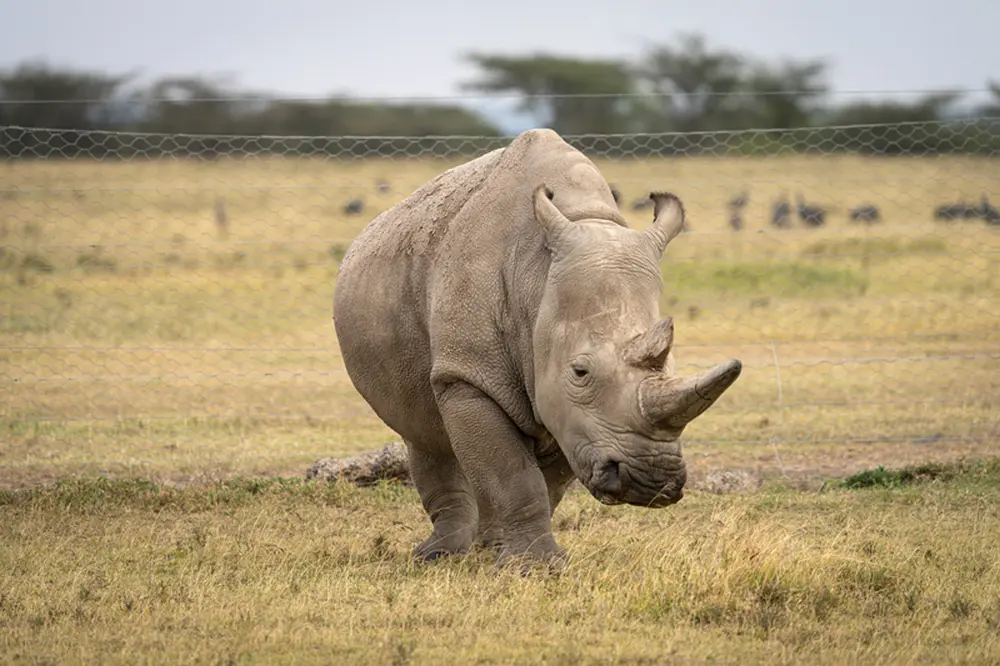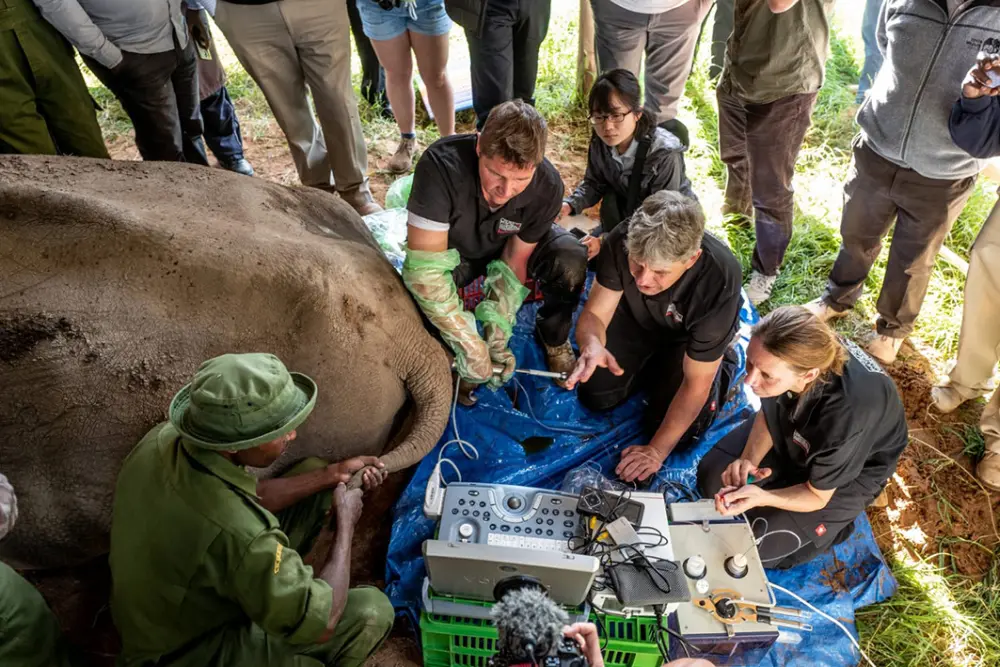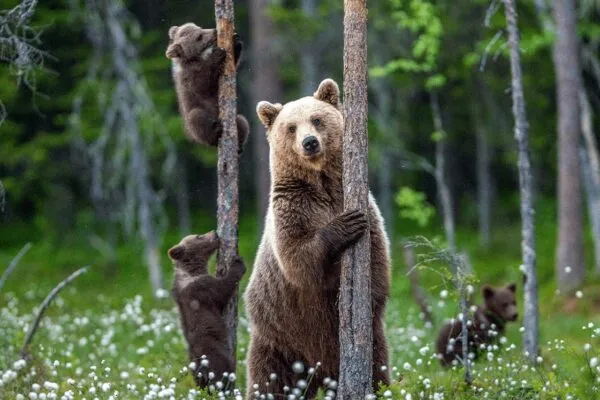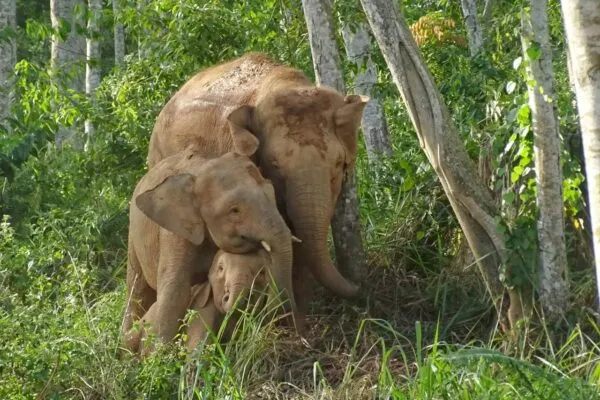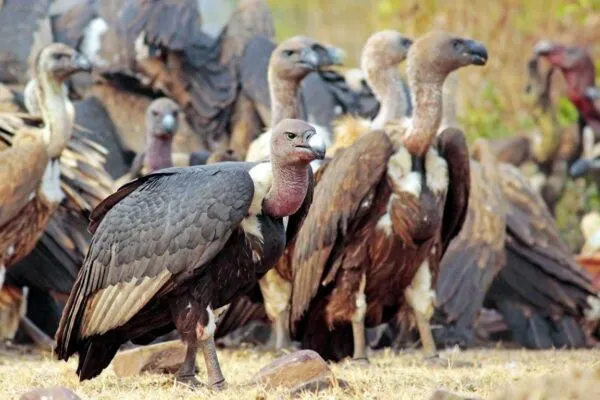Najin Retired From Breeding Scheme – What it Means for Northern White Rhinos?
One of the last two northern white rhinos, Najin was withdrawn from breeding scheme after a careful consideration about the mammal’s health
The northern white rhinoceros is a critically endangered subspecies of white rhinos. There are only two known individuals of this subspecies left – Najin and Fatu. Najin, one of the world’s last two northern white rhinos has been retired from the breeding program trying to save the species from extinction.
Following an “ethical risk assessment,” scientists decided to stop harvesting eggs from the 32-year-old Najin after considering her age and other factors. Ultrasound scans had revealed many small, benign tumors on the mammal’s cervix and uterus and a cyst on her left ovary.
BioRescue, the scientific group working on the breeding scheme, said it had measured up many risks before deciding to stop harvesting Najin’s eggs.
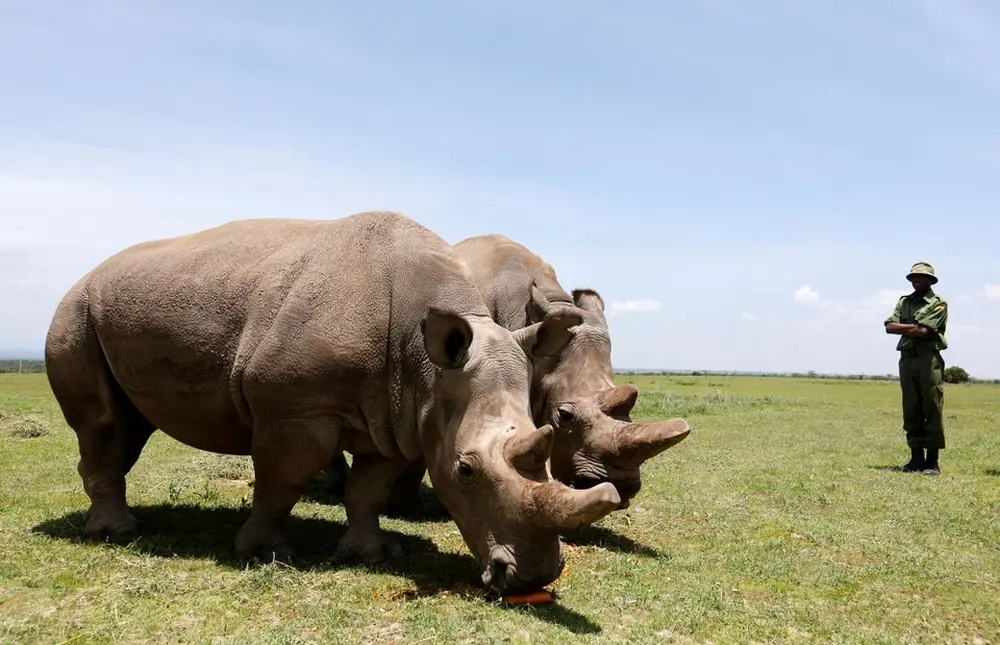
Image: Thomas Mukoya/Reuters
Once these beautiful animals roamed the countries in East and Central Africa south of the Sahara Desert. However, northern white rhinos have been brought to the brink of extinction by poaching and habitat loss. Poachers have been killing these creatures to sell their horns for $50,000 per pound.
Najin Retired from Breeding Program – What it means for the species?
Now that there are only two known northern white rhinos left in the world, it has become a critical task to increase the population. They belong to the Dvůr Králové Zoo in the Czech Republic but live in Ol Pejeta Conservancy in Kenya, Africa, where armed guards protect them all day long.
They were brought to the conservancy in 2009, along with two male northern white rhinos – Suni and Sudan. Suni died from natural causes in 2014, while Sudan died in 2018. The death of the males of the species posed a great threat to the survival of the species.
Regrettably, both these rhinos are females and have been unable to carry a pregnancy to full term by either mating or artificial insemination. Scientists had collected sperm from the male of the species, which has been used to fertilize eggs extracted from both Najin and Fatu. Unfortunately, the efforts to fertilize Najin’s eggs have failed so far.
As the future of the species looks rather bleak, scientists have an outlandish plan to save them from extinction. The sole burden of the breeding program now has fallen alone on Najin’s daughter Fatu. Twelve embryos have been created from her eggs so far. Scientists plan to implant them into surrogate mothers selected from a marked population of southern white rhinos.
What are the chances of success of the surrogacy plan?
While there hasn’t been any successful data to back this peculiar surrogacy plan, scientists remain optimistic. As there is not much known about the menstrual cycle in rhinos, it has been estimated that they release their eggs when they mate, similar to the cats.
This hypothesis has led the scientists to believe that the best time to implant the embryos would be after sexual intercourse in the southern white rhinos. It could increase the chances of the surrogate carrying the pregnancy through to birth.
Following on this hunch, the scientists at the conservancy have enclosed four wild female southern white rhinos with their natural habitat near Fatu and Najin. The next step is to put a sterilized male southern white rhino in with the females.
The chances of surrogacy success are 50-50; it could either happen and these southern white rhinos might actually save the species from extinction or we may lose the species forever.
Now that Najin has retired from the breeding program led by BioRescue, the embryos created from Fatu’s eggs will determine the future of the species. Only time will tell what becomes of this plan and of the northern white rhinos.
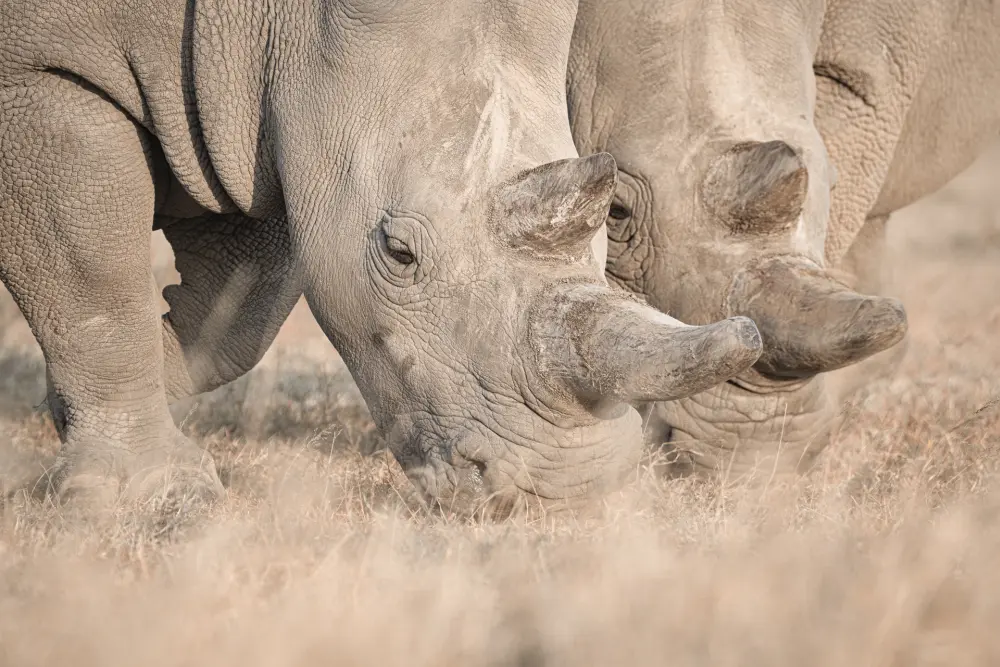
Image: Jan Zwilling
